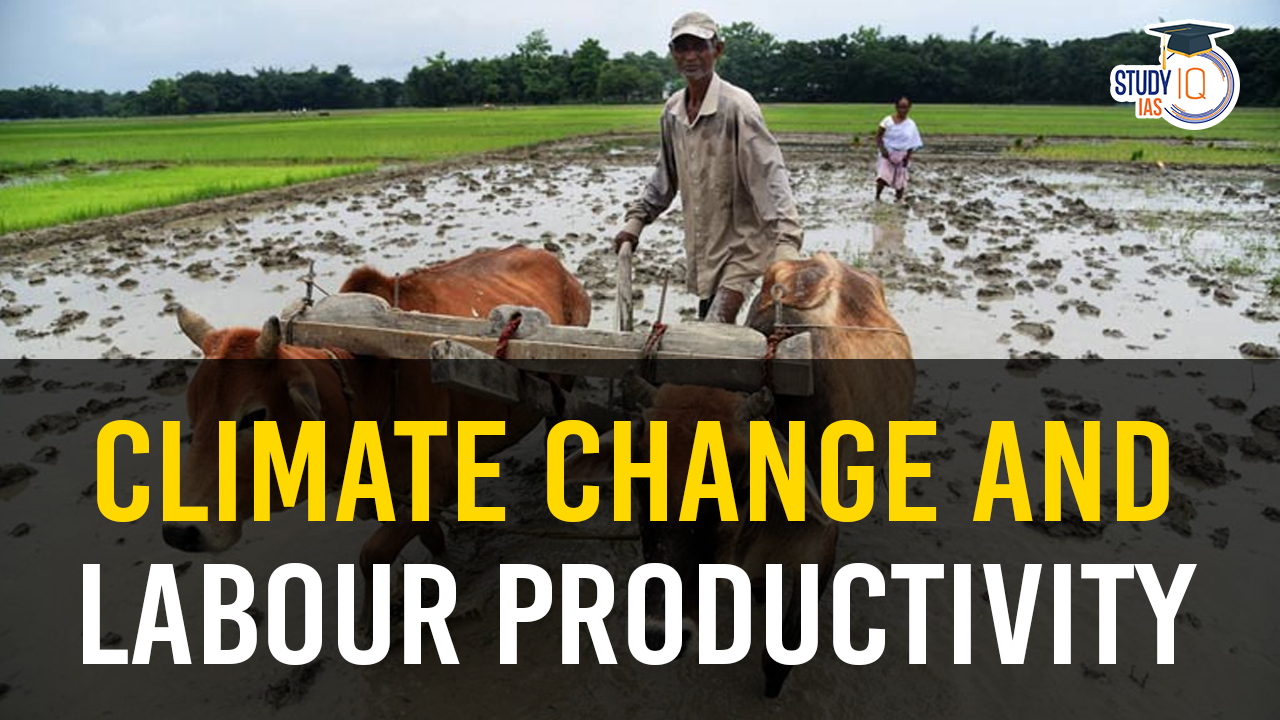Table of Contents
Context
The International Labour Organization (ILO) report, ‘Ensuring Safety and health at Work in a Changing Climate’, emphasises the need to prepare workplaces for climate change.
Emerging Hazards Identified by the ILO
- ILO identifies six key impacts of climate change on workers:
- Excessive Heat: Poses risks of heat stress and related health issues.
- Solar Ultraviolet Radiation: Increases the risk of skin cancer and other skin-related problems.
- Extreme Weather Events: Can lead to physical injuries and infrastructure damage affecting workplaces.
- Workplace Air Pollution: Worsened by climate effects, causing respiratory and cardiovascular diseases.
- Vector-borne Diseases: Increased prevalence due to changing climates, affecting outdoor workers.
- Agrochemicals: Intensified use in changing climatic conditions can increase exposure to harmful chemicals.
- Heatstroke, stress, and exhaustion are major health risks, especially for outdoor workers in agriculture, construction, sanitation, transport, and tourism.
- Gig workers, a growing segment of India’s workforce, are particularly vulnerable to heat stroke due to a lack of formal protections.
Sectors Most Affected
- Agriculture: The sector is extremely vulnerable to heat, especially in developing countries where informal farm labourers lack weather protection.
- The NSSO data of July 2018-June 2019 revealed that almost 90% of Indian farmers own less than two hectares of land and earn low wages, limiting their ability to invest in adapting to heat.
- Micro, Small and Medium Enterprises (MSME): Employing about 123 million workers or 21% of India’s workforce, this sector suffers no oversight of worker conditions by State Occupational Safety and Health (OSH) departments, making workers susceptible to heat hazards.
- Construction: With about 70 million workers (12% of India’s workforce), this sector is prone to the urban heat island effect and various health hazards, including physical injuries and respiratory issues due to air pollution.
Existing Laws and Loopholes
- A range of more than 13 central laws in India including, the Factories Act, 1948, the Workmen Compensation Act, 1923, the Building and Other Construction Workers Act, 1996, the Plantations Labour Act, 1951, the Mines Act, 1952 and the Inter-State Migrant Workmen Act, 1979, regulate working conditions across several sectors.
- These laws were consolidated and amended in September 2020 under one law — the Occupational Safety, Health and Working Conditions Code, 2020 (OSH Code, 2020).
- The Factories Act, 1948, defines a factory as having 10 or more workers, but less than a quarter of a million factories are registered under it.
- This excludes most MSMEs from government inspections.
- The Factories Act’s provisions on ventilation and temperature are outdated and don’t consider factors like activity level or technological advancements in cooling methods.
- Other climate hazards like effluent disposal are not addressed.
|
Examples |
|
Way Forward
- Update labour laws to address climate hazards and incorporate advancements in cooling technologies.
- Strengthen enforcement mechanisms by filling inspector vacancies and improving training.
- Develop a universally accepted regulatory framework to ensure climate-proof workplaces and worker protections.


 Great Indian Bustard (GIB), Features and...
Great Indian Bustard (GIB), Features and...
 List of Military Exercises of India 2024...
List of Military Exercises of India 2024...
 Hantavirus: Causes, Symptoms, Transmissi...
Hantavirus: Causes, Symptoms, Transmissi...





















